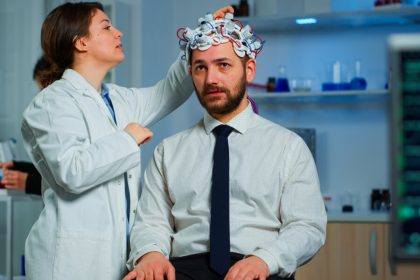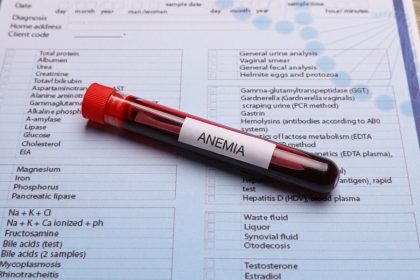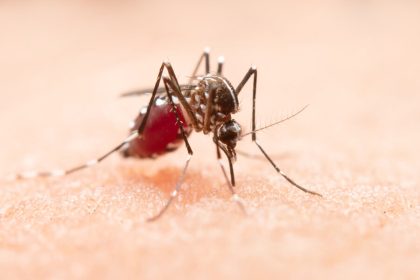Have you ever felt the world tilt beneath your feet, sending your stomach on a rollercoaster ride without even leaving the couch?
That, my friends, is the fascinating and sometimes frustrating phenomenon of dizziness.
But fear not, fellow Earthlings, for today we delve into the curious case of dizziness, unraveling its mysteries and equipping you with natural remedies to keep your world firmly on its axis.
Dizziness, that ephemeral waltz between our senses, often leaves us momentarily unsteady. It’s like a secret dance partner, twirling us into a world of dizziness.
But what orchestrates this intricate ballet within our bodies? Let’s unravel it’s details, step by step.
Either a painful disruption of spatial orientation or an incorrect impression of movement—more precisely, “vertigo”—are referred to as “dizziness.” A person experiencing vertigo may feel movement in their surroundings, their own body—such as swaying or rotating—or both.
In addition to headaches, dizziness and vertigo are among the most prevalent symptoms that patients, not only neurologists, report with.
In their lifespan, 20% to 30% of people will have them.
Their lifetime prevalence is approximately 20% to 30% . According to “National Library of Medicine”
Vertigo and Disequilibrium
Vertigo: The Spinning Sensation
Imagine standing still, yet the room pirouettes around you. That’s vertigo! It’s like your inner ear decided to host its own carnival ride.
Benign Positional Vertigo (BPV): This mischievous culprit strikes when you change positions too quickly—like sitting up in bed after lying down. Suddenly, the world twirls, and you’re caught in a dizzy tango.
Meniere’s Disease: Fluid buildup in the ear leads to vertigo, accompanied by ear fullness, hearing loss, and a touch of tinnitus. It’s like your ear threw a pool party without inviting you.
Disequilibrium: The Balance Tango
Disequilibrium is less about spinning and more about stumbling. It’s the loss of balance or equilibrium.
Picture a tightrope walker swaying precariously. That’s you, trying to maintain balance.
Acoustic Neuroma: A noncancerous tumor on the vestibulocochlear nerve (the ear-brain hotline) can lead to a dizzy pas de deux.
Causes
It isn’t a singular tune; it’s an entire orchestra of disorienting feelings.
Spinning, lightheadedness, feeling faint, or that disconcerting “room is swaying” sensation – they all belong to the dizziness family.
Each note plays a role in diagnosing the root cause, so deciphering their melody is key.
The causes of it are as diverse as a Broadway cast. Let’s unveil some of the most common ones:
Inner Ear Woes:
Your inner ear is a maestro of balance, and when its tiny hairs get upset (think inner ear infections, Meniere’s disease, or benign paroxysmal positional vertigo), your world can do a jig.
Blood Flow Blues
Low blood pressure, dehydration, or anemia can lead to a decrease in blood flow to the brain, causing that lightheaded, “about to faint” feeling.
Migraine’s Mischief:
Not just headaches, migraines can also bring dizziness as part of their entourage.
Anxiety’s Encore:
Feeling anxious or stressed can trigger hyperventilation, leading to lightheadedness and dizziness.
Medications’ Side Effects: Some medications, particularly blood pressure medications, can have dizziness as a side effect.
Dehydration:
Losing too much fluid can leave you parched and dizzy. Remember, your body is 60% water, and it doesn’t appreciate droughts.
Symptoms: Thirst, dry skin, and a wobbly waltz.
Medications: The Side Effect Samba
Some meds moonlight as dance partners. Watch out for:
- Muscle relaxants
- Antiepileptic drugs
- Antihistamines
Blood pressure medications
Sudden Blood Pressure Drops:
- Standing up too quickly can lead to a dramatic dip in blood pressure. Cue the dizziness!
- Older adults, especially, may find themselves doing an involuntary floor routine.
Cardiomyopathy:
When heart muscles weaken, the rhythm falters.
Symptoms include dizziness, fainting, and breathlessness.
It’s like your heart joined a ballroom competition but forgot the steps.
Heart Attack: The Unexpected Tango
Dizziness or lightheadedness can also signal a heart attack.
Your brain’s like, “Hey, where’s the blood party?”
Symptoms
Dizziness rarely plays a solo act. It often shares the stage with other symptoms, offering valuable clues to its cause. Keep an eye out for:
- Nausea and vomiting
- Headaches
- Earache
- Vision problems
- Heart palpitations
- Weakness or fatigue
Treatment and Diagnosis
Diagnosis: Unmasking the Culprits
When dizziness takes center stage, doctors perform a symphony of tests to pinpoint the underlying cause:
Physical Examination:
Your doctor observes how you walk, maintain balance, and assesses the major nerves of your central nervous system.
Eye Movement Testing:
Imagine tracking a moving object while your doctor watches the path of your eyes. Additionally, water or air may be placed in your ear canal to evaluate eye motion.
Head Movement Testing (Dix-Hallpike Maneuver):
If benign paroxysmal positional vertigo (BPPV) is suspected, this simple head movement test verifies the diagnosis.
Posturography:
You stand barefoot on a platform, testing which parts of your balance system are reliable and which may be causing issues.
Rotary Chair Testing: Imagine sitting in a computer-controlled chair that moves slowly in a circle. It’s like a dance with equilibrium.
Treatment Options:
a. Medications
Water Pills (Diuretics):
For Meniere’s disease, these may help reduce the frequency of dizziness episodes when combined with a low-salt diet.
Dizziness and Nausea Relief:
Prescription antihistamines and anticholinergics provide immediate relief but may cause drowsiness.
Anti-Anxiety Medications (Benzodiazepines):
Diazepam (Valium) and alprazolam (Xanax) can ease symptoms but carry a risk of addiction.
b. Preventive Measures
Canalith Repositioning (Epley Maneuver): A technique to swiftly resolve BPPV. It involves maneuvering your head position.
Lifestyle Changes: Avoid driving, work at heights, and wear low-heeled, nonslip shoes.
Educate Family and Friends: Share your dizzy moves—they can assist during an episode.
c. The Grand Finale: Prevention
While vertigo cannot be prevented entirely, safety measures can minimize complications:
- Avoid Driving: Your car isn’t a dance floor.
- Stay Grounded: Opt for low-heeled shoes and nonslip soles.
- Seek Immediate Help: If you experience chest pain, speech changes, vomiting, or severe headache.
Conclusion
Understanding dizziness and its diverse causes empowers you to manage it effectively.
Embrace natural remedies when appropriate, seek medical advice when needed, and remember, even when the world seems to spin, you have the power to regain your balance and find your center.
FAQs
What are the common causes of dizziness?
Dizziness can be caused by various factors, including inner ear disturbances, such as benign paroxysmal positional vertigo (BPPV), vestibular neuritis, or Meniere’s disease.
Other causes may include dehydration, low blood sugar, medication side effects, anxiety disorders, or more serious conditions like heart problems or neurological disorders.
What are the related symptoms of dizziness?
Related symptoms of dizziness can vary depending on the underlying cause but may include feelings of lightheadedness, vertigo (a spinning sensation), imbalance, faintness, nausea, vomiting, sweating, or ringing in the ears (tinnitus). These symptoms may occur alone or in combination.
How is dizziness diagnosed?
Diagnosing dizziness involves a comprehensive medical evaluation, including a detailed medical history, physical examination, and possibly specialized tests.
These tests may include blood tests, imaging studies (such as MRI or CT scans), vestibular function tests, and electrocardiograms (ECG) to assess heart function.
What are the treatment options for dizziness?
Treatment for dizziness depends on the underlying cause. For benign conditions like BPPV, specific maneuvers such as the Epley maneuver may be effective.
Medications like anti-vertigo drugs or vestibular rehabilitation therapy may also be prescribed. Lifestyle changes, such as staying hydrated, avoiding triggers, and managing stress, can also help alleviate symptoms.
Can dizziness be a sign of a serious health condition?
Yes, in some cases, It can be a symptom of a serious underlying health condition, such as a stroke, heart attack, or neurological disorder. It’s essential to seek medical attention if dizziness is severe, persistent, or accompanied by other concerning symptoms like chest pain, difficulty speaking, weakness, or loss of consciousness.
When should I see a doctor about my dizziness?
You should see a doctor if you experience frequent or severe episodes of dizziness, especially if it interferes with your daily activities or is accompanied by other concerning symptoms.
Additionally, seek immediate medical attention if dizziness is sudden, severe, or associated with symptoms like chest pain, difficulty breathing, slurred speech, or weakness on one side of the body.





